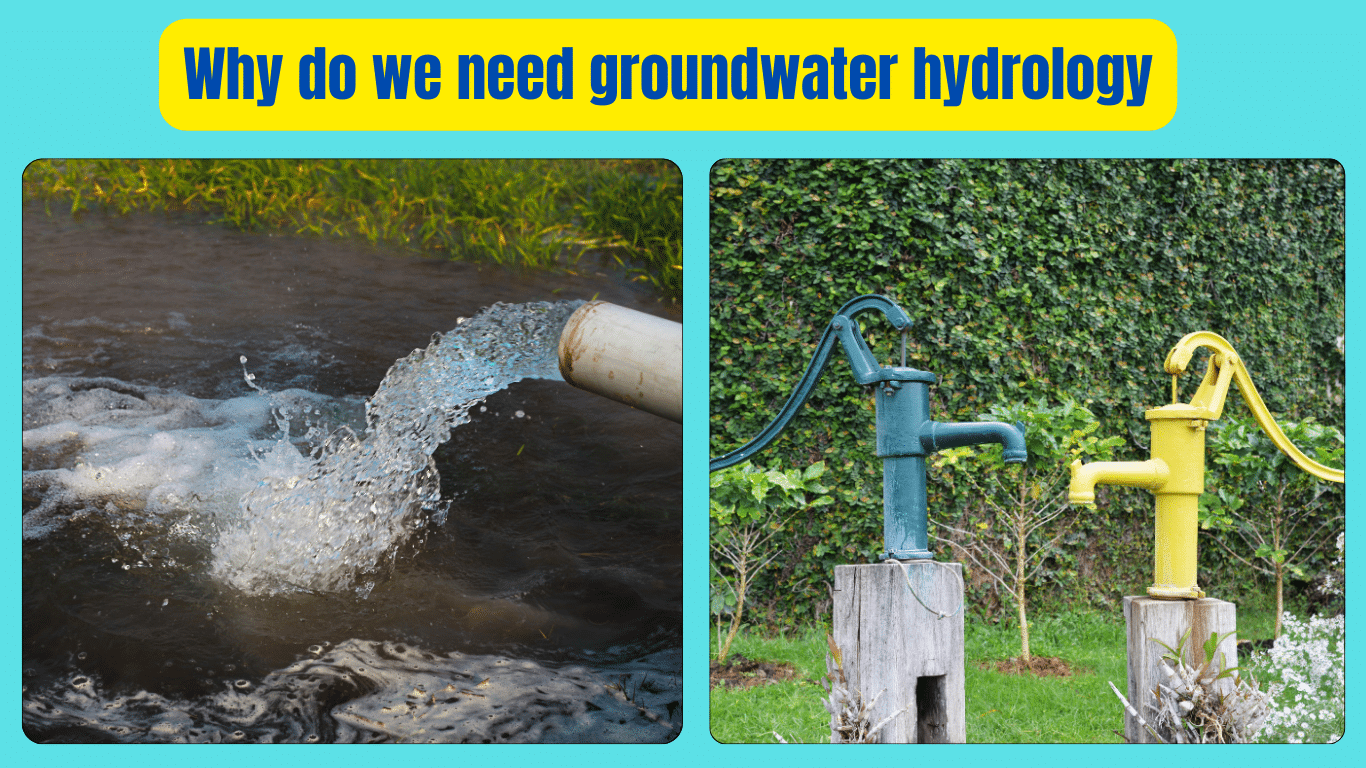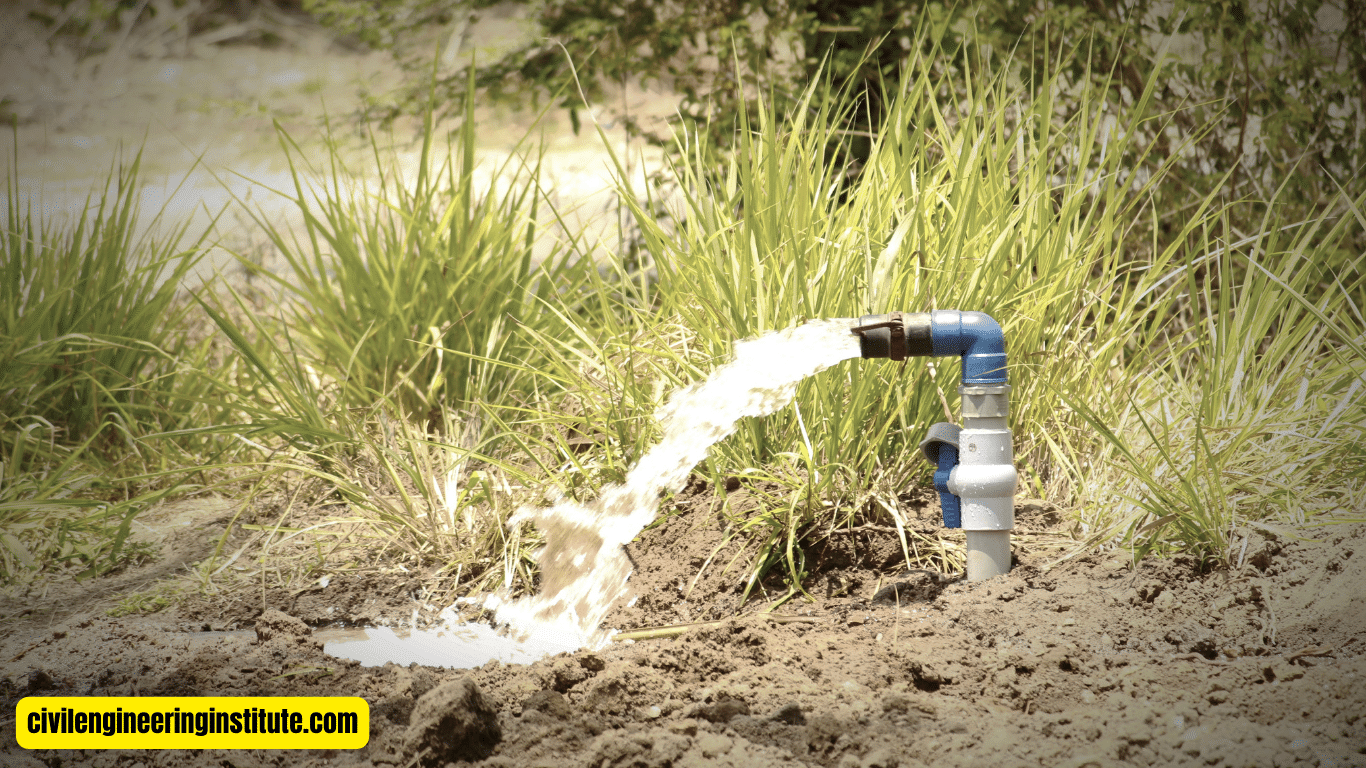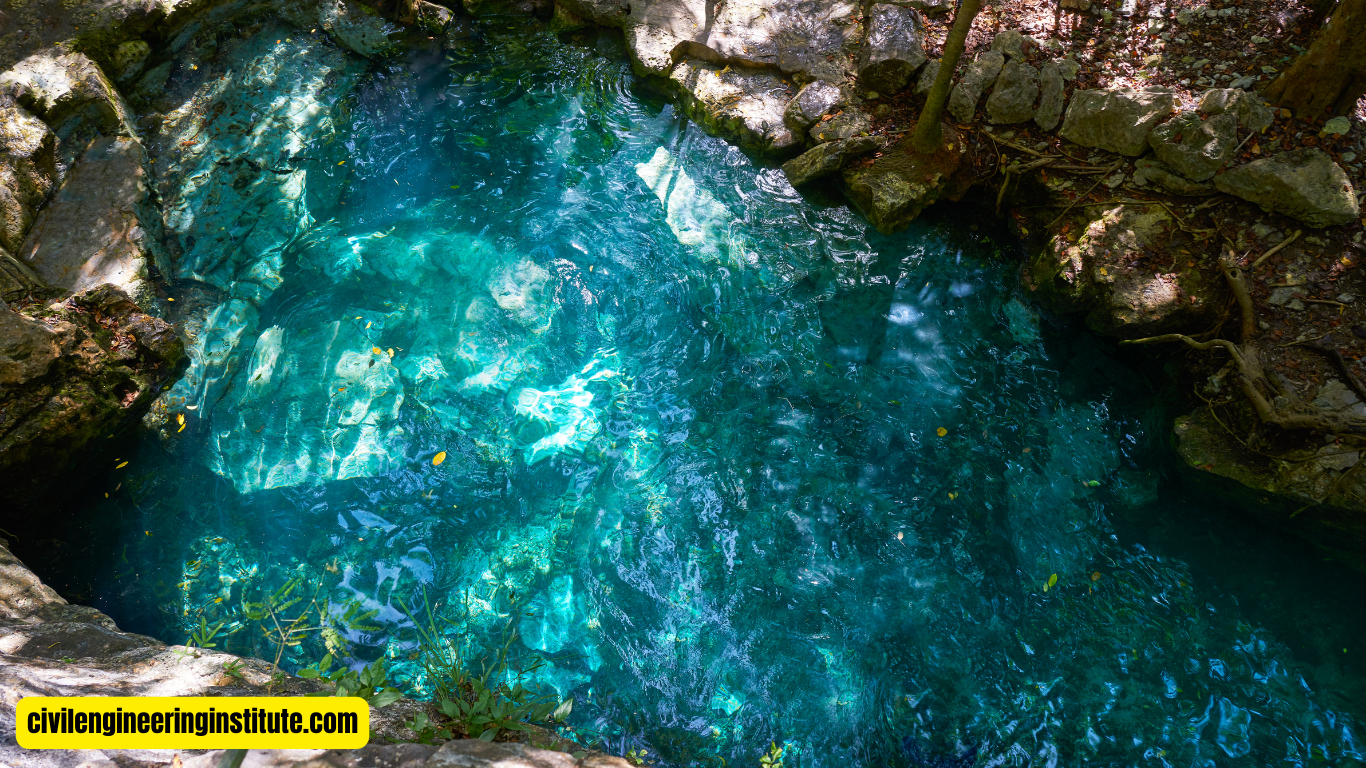Why do we need groundwater hydrology? It is crucial for understanding and managing our underground water resources effectively. We need groundwater hydrology for several reasons. First and foremost, groundwater serves as a vital source of drinking water for millions of people worldwide. By studying groundwater hydrology, we can determine the quality and quantity of available groundwater, ensuring sustainable access to clean drinking water for communities. Additionally, groundwater hydrology plays a critical role in agriculture, providing irrigation water to crops and sustaining food production.
Furthermore, industries rely on groundwater for various processes, highlighting the importance of understanding groundwater hydrology for economic activities. Moreover, groundwater hydrology helps us assess and mitigate the impacts of groundwater contamination, ensuring the protection of ecosystems and public health. Overall, groundwater hydrology is essential for managing water resources efficiently, supporting human needs, and preserving the environment for future generations.
Understanding the Importance of Groundwater Hydrology: A Comprehensive Guide
Groundwater hydrology plays a vital role in sustaining life on Earth, serving as a crucial source of clean water for various purposes. In this comprehensive article, we delve into why groundwater hydrology is essential, exploring its significance for drinking water supply, agriculture, industry, environmental protection, and more.
The Basics of Groundwater Hydrology
Before delving into why groundwater hydrology is important, let’s first understand what it entails. Groundwater hydrology is the study of groundwater: the water that fills the spaces between soil particles and rocks beneath the Earth’s surface. It involves analyzing the movement, distribution, quality, and interaction of groundwater with surface water and the environment.
Why Groundwater Hydrology Matters
- Sustainable Drinking Water Supply
- Agricultural Irrigation
- Industrial Applications
- Environmental Protection
- Ecosystem Support
Sustainable Drinking Water Supply
One of the primary reasons we need groundwater hydrology is to ensure a sustainable supply of drinking water. Groundwater serves as a vital source of clean, potable water for millions of people worldwide, particularly in areas where surface water is scarce or contaminated. By understanding groundwater hydrology, we can assess the availability and quality of groundwater resources, ensuring reliable access to safe drinking water for communities.
Agricultural Irrigation
Groundwater hydrology is essential for agriculture, providing irrigation water to crops and sustaining food production. Many farmers rely on groundwater wells to irrigate their fields, especially during dry seasons or droughts. Understanding groundwater hydrology helps farmers manage water resources efficiently, ensuring optimal crop yields while conserving water for future generations.
Industrial Applications
Industries rely on groundwater for various processes, including manufacturing, cooling, and resource extraction. Groundwater hydrology is crucial for industries to understand the availability and sustainability of groundwater resources for their operations. By studying groundwater hydrology, industries can make informed decisions about water use, minimize environmental impacts, and ensure long-term viability.
Environmental Protection
Groundwater hydrology plays a critical role in environmental protection by helping us assess and mitigate the impacts of groundwater contamination. Pollutants from industrial activities, agriculture, and urban areas can seep into groundwater, posing risks to ecosystems and human health. Understanding groundwater hydrology enables us to monitor groundwater quality, identify contamination sources, and implement remediation strategies to protect groundwater resources and the environment.
Ecosystem Support
Groundwater hydrology is essential for supporting aquatic ecosystems, wetlands, and riparian habitats. Groundwater sustains base flow in rivers and streams, maintaining habitat conditions for fish, wildlife, and plants. By understanding groundwater hydrology, we can protect and restore groundwater-dependent ecosystems, ensuring biodiversity and ecological resilience.
The Future of Groundwater Hydrology
As global populations grow, climate change intensifies, and water resources become increasingly stressed, the importance of groundwater hydrology will only continue to grow. Advances in technology and scientific research will enhance our understanding of groundwater systems, enabling us to manage water resources more effectively and sustainably. Groundwater hydrology will play a critical role in addressing future water challenges and ensuring the availability of clean water for generations to come.
Some important points: Why do we need groundwater hydrology?
Why is Groundwater Hydrology Important?
Groundwater hydrology is essential because it provides us with valuable insights into the movement, quality, and availability of groundwater resources. Groundwater serves as a critical source of clean drinking water for millions of people worldwide, especially in areas where surface water is limited or contaminated. By understanding groundwater hydrology, we can ensure sustainable access to safe drinking water, support agricultural irrigation, protect ecosystems, and drive economic development.
The Importance of Groundwater in the Hydrologic Cycle
Groundwater plays a crucial role in the hydrologic cycle by replenishing surface water bodies, such as rivers, lakes, and streams, through a process known as groundwater discharge. During periods of low precipitation or drought, groundwater sustains base flow in rivers and streams, ensuring habitat conditions for aquatic life and supporting ecosystems. Groundwater also interacts with surface water through seepage and recharge, influencing water availability and quality throughout the hydrologic cycle.
Why is Groundwater Management Important?
Groundwater management is essential for ensuring the sustainable use and protection of groundwater resources. Effective groundwater management practices help prevent overexploitation, depletion, and contamination of groundwater aquifers, thereby safeguarding water quality, ecosystems, and human health. By implementing strategies for groundwater monitoring, regulation, conservation, and recharge, we can manage groundwater resources responsibly and mitigate the risks of depletion and pollution.
The Four Uses of Groundwater
Groundwater has various uses, including:
- Drinking Water Supply
- Agricultural Irrigation
- Industrial Processes
- Environmental Support
Drinking Water Supply: Groundwater serves as a primary source of clean drinking water for communities around the world.
Agricultural Irrigation: Groundwater is used for irrigating crops, sustaining agricultural production, and ensuring food security.
Industrial Processes: Industries rely on groundwater for manufacturing, cooling, and resource extraction, highlighting its importance for economic activities.
Environmental Support: Groundwater sustains aquatic ecosystems, wetlands, and riparian habitats by maintaining base flow in rivers and streams and supporting biodiversity.
Why Do We Need Hydrology?
Hydrology is essential for understanding the distribution, movement, and behavior of water on Earth’s surface and underground. By studying hydrology, we can predict and manage water resources, assess the impacts of climate change, develop flood control measures, and protect against water-related hazards such as floods and droughts. Hydrology also helps us optimize water use, promote water conservation, and ensure sustainable development.
Harmful Effects of Groundwater Depletion
Groundwater depletion can have harmful effects on the environment and society, including:
- Subsidence
- Saltwater Intrusion
- Ecosystem Degradation
- Dwindling Water Supply
Subsidence: Excessive pumping of groundwater can cause land subsidence, leading to infrastructure damage and increased flood risk.
Saltwater Intrusion: Groundwater depletion can allow saltwater to intrude into coastal aquifers, contaminating freshwater supplies and impacting ecosystems.
Ecosystem Degradation: Groundwater depletion can dry up wetlands, rivers, and streams, disrupting aquatic habitats and threatening biodiversity.
Dwindling Water Supply: Groundwater depletion can lead to water scarcity, affecting drinking water availability, agricultural irrigation, and industrial operations.
Different Types of Groundwater in Hydrology
In hydrology, groundwater is classified into different types based on its depth, location, and geological characteristics. Common types of groundwater include shallow groundwater, which is found close to the land surface, and deep groundwater, which is located deeper underground in confined aquifers. Other types include unconfined groundwater, perched groundwater, and artesian groundwater, each with its own unique hydrological properties.
Difference Between Groundwater Hydrology and Hydrogeology
Groundwater hydrology and hydrogeology are closely related fields that focus on studying groundwater systems and their interactions with the environment. While groundwater hydrology primarily deals with the movement, distribution, and management of groundwater resources, hydrogeology delves deeper into the geological aspects of groundwater, including aquifer properties, groundwater flow dynamics, and groundwater contamination mechanisms.
Sources of Groundwater
Groundwater originates from various sources, including:
- Infiltration
- Surface Water Seepage
- Snowmelt
- Artificial Recharge
Infiltration: precipitation that infiltrates into the soil and percolates downward into aquifers contributes to groundwater recharge.
Surface Water Seepage: Surface water bodies such as rivers, lakes, and streams can lose water through seepage into the ground, replenishing groundwater.
Snowmelt: Melting snow and ice can infiltrate into the ground, contributing to groundwater recharge, especially in mountainous regions.
Artificial Recharge: Some groundwater systems are recharged artificially through practices such as injection wells, infiltration basins, and recharge ponds to supplement natural recharge processes.
Conclusion
In conclusion, groundwater hydrology is indispensable for sustaining life, supporting agriculture, industry, and ecosystems, and protecting the environment. By studying groundwater hydrology, we can ensure a sustainable supply of clean drinking water, promote food security, drive economic development, and safeguard natural resources for future generations. As we face growing water challenges in the 21st century, groundwater hydrology will remain a cornerstone of water resource management and environmental protection efforts worldwide.
FAQs
What is groundwater hydrology, and why is it important?
Groundwater hydrology is the study of groundwater and its movement underground. It’s important because it helps us understand and manage our underground water resources effectively.
How does groundwater hydrology help us with drinking water?
Groundwater hydrology helps us assess the quality and quantity of groundwater, ensuring a sustainable and clean supply of drinking water for communities.
Why is groundwater hydrology crucial for agriculture?
Groundwater hydrology provides irrigation water for crops, supporting agriculture and ensuring food production even in dry seasons.
How does groundwater hydrology benefit industries?
Industries rely on groundwater for various processes, like manufacturing and cooling. Groundwater hydrology helps ensure the availability and sustainability of groundwater resources for industrial use.
How does groundwater hydrology contribute to environmental protection?
Groundwater hydrology helps us assess and mitigate groundwater contamination, protecting ecosystems and public health from harmful pollutants.
Can groundwater hydrology help us understand the hydrologic cycle?
Yes, groundwater hydrology plays a crucial role in the hydrologic cycle by replenishing surface water bodies and influencing water availability and quality throughout the cycle.
What are the consequences of ignoring groundwater hydrology?
Ignoring groundwater hydrology can lead to overexploitation, depletion, and contamination of groundwater resources, jeopardizing water quality, ecosystems, and human health.
How does groundwater hydrology support aquatic ecosystems?
Groundwater sustains base flow in rivers and streams, maintaining habitat conditions for aquatic life and supporting biodiversity.
What role does groundwater hydrology play in economic development?
Groundwater hydrology supports economic activities by providing water for industries, agriculture, and communities, driving economic growth and prosperity.
How can groundwater hydrology help address future water challenges?
By understanding groundwater systems and implementing sustainable management practices, groundwater hydrology can help us address future water challenges, ensuring water security and resilience for future generations.





